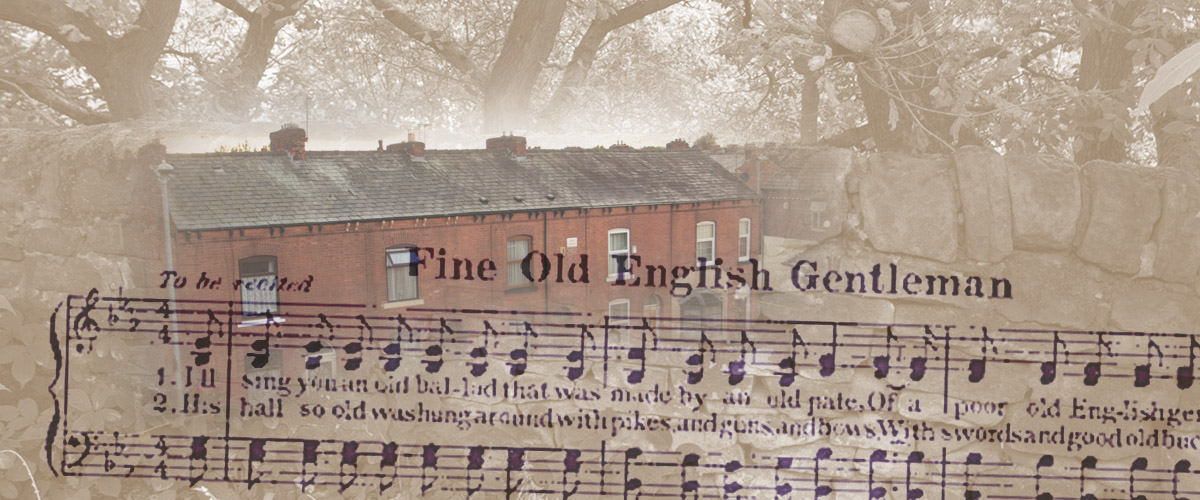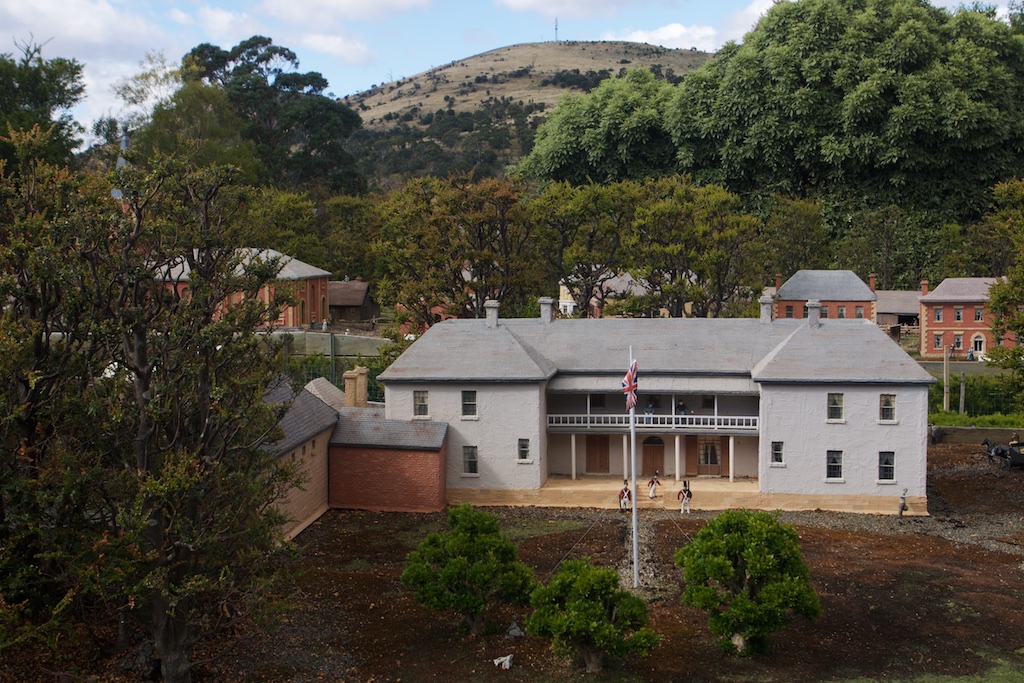Television and photo-plays have theme tunes. Nation-states have theme tunes which they call National Anthems. For most of Australia’s past two centuries, the national theme tune has been “God Save the [Queen/King]” (which does say quite a lot about the mentality of those who made that choice). Outside show-business identities and fictional characters, real people tend not have their own personal theme tune which plays whenever they make an entrance in to a room. (The President of the United States’s personal theme music pretty much confirms my previous observation.)
Thus, it is pretty damn special that I can now confirm that James Dyson (1810-1888) convict, entrepreneur, ratbag and most glorious ancestor of them all, also had his very own theme tune that the band struck up when he rose to his feet.
A theme tune isn’t like a personal favourite song,— the recipient doesn’t have to like it— whether Old Man Dyson appreciated his choice we can never know, but if he did understand the full significance of what was assigned to him, I would like to think he would have smiled, if only ironically. Then, as now, and probably throughout all of musical history, the smash-hits and ear-worms of contemporary musical culture were adopted and championed by those who assigned a meaning and significance to the music exactly opposite to that intended by the musician creator.
So it was or could have been for Dyson’s very own theme tune “A Grand Old English Gentleman,” delivered by the ensemble of the “Free” Templar Band on the occasion of the thirty-ninth anniversary dinner of the foundation of the “Sons of Australia Benefit Society”.
Mr. M. STOKES proposed the next toast, that of the Treasurer of the Society, Mr. Jas. Dyson, speaking in eulogistic terms of that officer’s services. The toast was enthusiastically received, the Band playing “The Fine Old English Gentleman.”
Mr. DYSON, in responding, thanked the meeting for the hearty manner in which they had disposed of the toast of his health.
The Western Australian Times (Perth, WA : 1874 – 1879) Tuesday 27 February 1877 p2
I would guess that is was only the melody of the chorus line “Like a fine old English gentleman, All of the olden time.” that was played by the band, that would have been enough to get the idea across. As with any assembly of nineteenth-century men in self-congratulatory mode, it is impossible to tell whether they were mocking or deadly serious in their appreciation of what was, by 1877, already a hoary old chestnut, although, in its original form, it had only been composed back in 1835;
I’ll sing you an old ballad
original lyrics and melody by Henry Russell.
That was made by an old pate,
Of a poor old English Gentleman
Who had an old estate,
He kept a brave old mansion
At a bountiful old rate
With a good old porter to relieve
The old poor at his gate
Like a fine old English gentleman,
All of the olden time.
In 1835, James Dyson had been a year in Van Diemen’s Land, and a convict for twice that time. It may have been a longer time before that when he had last known the protection of a family home in the old country of Lancashire. The family James Dyson left behind certainly had no “brave old mansion“, and it was not until 1861 when his older brother Andrew became master of the decrepit manor house, Birchen Bower, complete with ghost story, legend of buried gold, and Chartists drilling in the neighbouring fields, that the Lancashire Dysons had substantial property. James Dyson had been a land owner at least since 1848 when he bought a lot on the corner of Murray and King Street in the city Perth. He also owned a swamp. If Dyson though about this at all at that time, he had a reason to smile.
A song has to get really popular first before it can be successfully parodied, so “A Fine Old English Gentleman” had been parodied many times indeed— even by 1877. The most famous example was penned as early as 1841 by no less than the most famous English author of the nineteenth century, Charles Dickens. The melody, on the other hand, was nicked about a decade later by Sir Arthur Sullivan, the respectable half of the Gilbert and Sullivan musical team, and used in their production of the “Mikado” (1885) in the opening of the number “Behold the Lord High Executioner”—
Understanding where this motif comes from adds another layer to the comedy and demonstrates that W. S. Gilbert was not the only subversive one of the pair.
Then there were the straight re-writes of the lyrics to the same tune, Here is one from a Queensland newspaper of 1899, by an anonymous someone with no sense of humour whatsoever:
[…]
Warwick Argus (Qld. : 1879 – 1901) Sat 1 Jul 1899 Page 3
Now surely this is better far
Than all the new parade
Of theatres and fancy balls,
‘At home’ and masquerade :
And much more economical,
For all his bills were paid.
Then leave your new vagaries quite,
And take up the old trade
Of a fine old English gentleman
All of the olden time.
The piss was asking to be taken, and us Australians did it as early as 1860 in a version entitled “The Fine Old Border Squatter“.
But here is the final twist, the song lives on today, stripped of it original lyrics, and according to the performers of this latest 20th century iteration:—
The original, a bourgeois pop song of the eighteenth century, gives a sycophantic picture of a rich old port-wine and roast-beef character, lolling on his estate and being kind to the poor at Christmas time. The present version gives the old song the ‘alienation’ treatment, by substituting a lower class hero, firmly non-conforming in habits. The Tinkers say: it was taught to us by John Howarth’s stepfather when we were barely of drinking age, and we’ve since heard it in many a pub: in fact, it’s quite a favourite taproom song in Oldham.
The Official Oldham Tinkers Website
Oldham was James Dyson’s home town in Lancashire, but you knew that by now, didn’t you?



